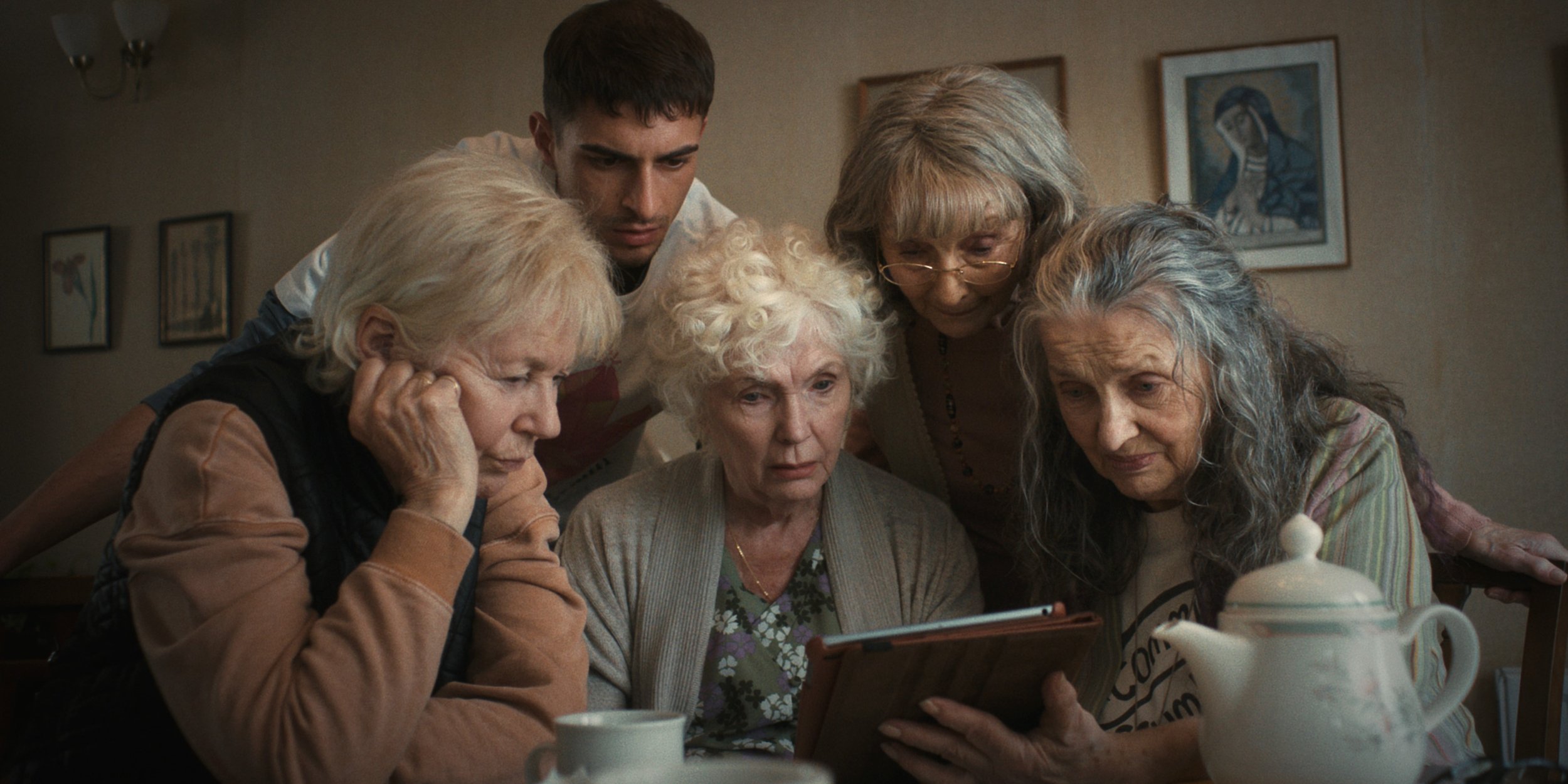
SIFF 2025 Opening Night: Four Mothers
May 16, 2025 / Kevin Ward — ❤️❤️❤️❤️🖤
Four Mothers opened the Seattle International Film Festival with a premise that sounds almost too silly to work: a gay Irish novelist gets roped into looking after not only his own aging, speech-impaired mother, but the mothers of three friends who’ve taken off to the Canaries for Pride weekend. On paper, it reads like a sitcom. But under Darren Thornton’s direction, it becomes something much gentler and more grounded—a sharp, funny, and quietly moving film about caretaking, obligation, and the emotional toll of always being the responsible one.
James McArdle's Edward is at the center, caught between who he wants to become and who he feels obligated to remain. His mother, Alma, played with astounding subtlety by Fionnula Flanagan, communicates only via an iPad. Despite this limitation, Flanagan delivers a refined performance, her expressive face doing the work of entire monologues. Her voice device—deadpan by design—becomes one of the film's most effective comedic tools. There's a delightful dissonance between the emotion of a moment and the flat, robotic tone of her delivery, which Thornton smartly returns to again and again. It never stops being funny. Alma is tough, proud, and nostalgic—her longing for the past conveniently erases its hardships, including the husband, who never quite accepted their son. Edward, in turn, wrestles with the guilt of wanting something more. In a quiet but powerful motif, the film draws a subtle parallel between Alma and Edward: both having lost their voices. Alma, literally, and Edward, figuratively—as his life becomes consumed by the needs of others, stifling his creative and personal expression. He speaks, yes, but rarely for himself.
There's a running tension in Four Mothers between ambition and responsibility, between selfishness and selflessness. Edward's decision—whether to seize the opportunity of a U.S. book tour or stay home to continue caregiving. McArdle captures the frustration and love tangled up in caretaking, as well as the unspoken resentment that builds when your life becomes an extension of someone else's needs.
This all unfolds amidst a makeshift commune of elderly women, enhancing the film's offbeat charm. The ladies have sharp tongues and sharper instincts, and their group dynamic hums with mutual annoyance as well as newfound camaraderie. At one point, they begin planning a séance to reach their late husbands—a plot turn that sounds absurd on its face but somehow fits right in. opening the door for a rich undercurrent in the film: a consideration of generational difference, particularly between these four working-class Irish women and the sons they raised—each of them gay. The film never makes a spectacle of this shared detail, but it informs everything. How these women speak about the past, their husbands, and shame and pride subtly reflect how hard-won their current acceptance might be. It’s there in how they show love—awkwardly, fiercely, imperfectly—and how that love shaped their sons’ resilience. Listening to these women chase closure he’s not sure he’ll ever get, Edward feels the weight of what he’s been denied.
Four Mothers is gently moving, and still, I found myself laughing throughout. There’s real joy in the performances and the group dynamics, even as the film navigates heavier emotional terrain. If you can get past the contrivances of the setup—and honestly, it’s not hard to—the reward is a surprisingly tender story about care, obligation, and carving out space for yourself in the middle of everyone else’s needs. A modest, funny, and unexpectedly affecting little film.
As an Opening Night selection at the Seattle International Film Festival, it sets the right tone—funny, sincere, and full of heart.
Director: Darren Thornton
Screenplay: Darren Thornton, Colin Thornton
Cast:
James McArdle, Fionnula Flanagan, Dearbhla Molloy, Paddy Glynn, Stella McCusker, Niamh CusackProducer: Jack Sidey, Eric Abraham, Martina Niland
Runtime: 89 minutes
Rated: NR

